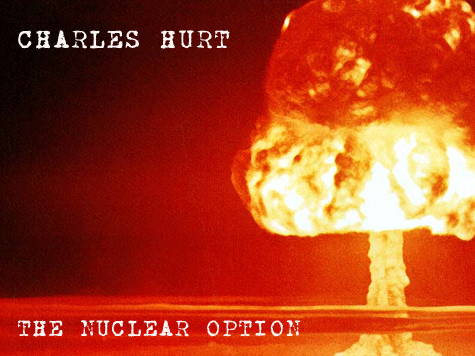They warned against unstoppable encroachment by the federal government and were branded “radicals.” They openly protested and wore funny clothes.
They became paranoid and suspected the government was spying on them because of their political beliefs. Fearful of a new tyranny, they invoked the Founding Fathers to demand freedom.
They feared for their precious children and the diminished liberty this corrupted America would hold for them.
So they gathered in secret and vowed to take action. They plotted to overthrow the evil regime.
It all sounds like a tea party gathering of black helicopter crazies in Roswell, NM, plotting the next revolution. Just ask any reporter.
Or maybe a Ron Paul-tard convention, or a Sarah Palin motorcycle rally. Thank God that Homeland Security is keeping close tabs on these dangerous militants.
Except, these people were nothing of the sort.
They were John and Bonnie Raines, Keith Forsyth, and Haverford College physics professor William Davidon.
Today, they are old; Davidon is dead. But in 1971, they were anti-war hippies, hellbent on forcing an end to the war in Vietnam. In protesting the war, they caught the creeping eye of J. Edgar Hoover and his domestic gestapo. The thugocracy ran license plates, spied on citizens and smeared good people.
Overwhelmed by grievances against their government, the mad hippies took action. They broke into an FBI office in Media, PA and stole suitcases full of files from the office. At a safe house, they examined the records and were stunned to learn the extent of the federal government’s abuses — at least the ones the government kept records on.
The daring group of burglars began mailing the evidence to various reporters around the country and thus began the unraveling of one of the most shameful regimes ever sanctioned under the American flag.
In a video produced by Retro Report for The New York Times, several members of the group this week revealed their identities. Mrs. Raines describes a protest rally where agents took pictures of not only her, but also her daughter sitting on her shoulders. Though they were risking everything, the Raineses believed it was a small price for freedom.
“We knew the FBI was systematically trying to squash dissent. And dissent is the lifeblood of democracy,” Mr. Raines says.
Pretty sure I saw that line on a poster at the last tea party event I attended. Sadly, though, it is hard to imagine two groups — tea partiers of today and hippies from the ’60s — who would find less in common with each other.
When did freedom in America become something that divides us? How is it that today liberty is so misunderstood, so often ignored, taken for granted, and increasingly used only as a hollow word to attack those with whom we have small, petty political differences? And when did deep wariness of government control become something to be mocked?
What the Raineses and their crew did in 1971 was clearly illegal. It was dangerous. And had they been caught, they rightly would have been punished.
But we should be grateful to them for risking everything and thankful that they got away with it. And we should always remember that it is only freedom that unites us here in America. And instead of mocking those who fight for it, we should whisper a prayer of thanks under our breath.

COMMENTS
Please let us know if you're having issues with commenting.